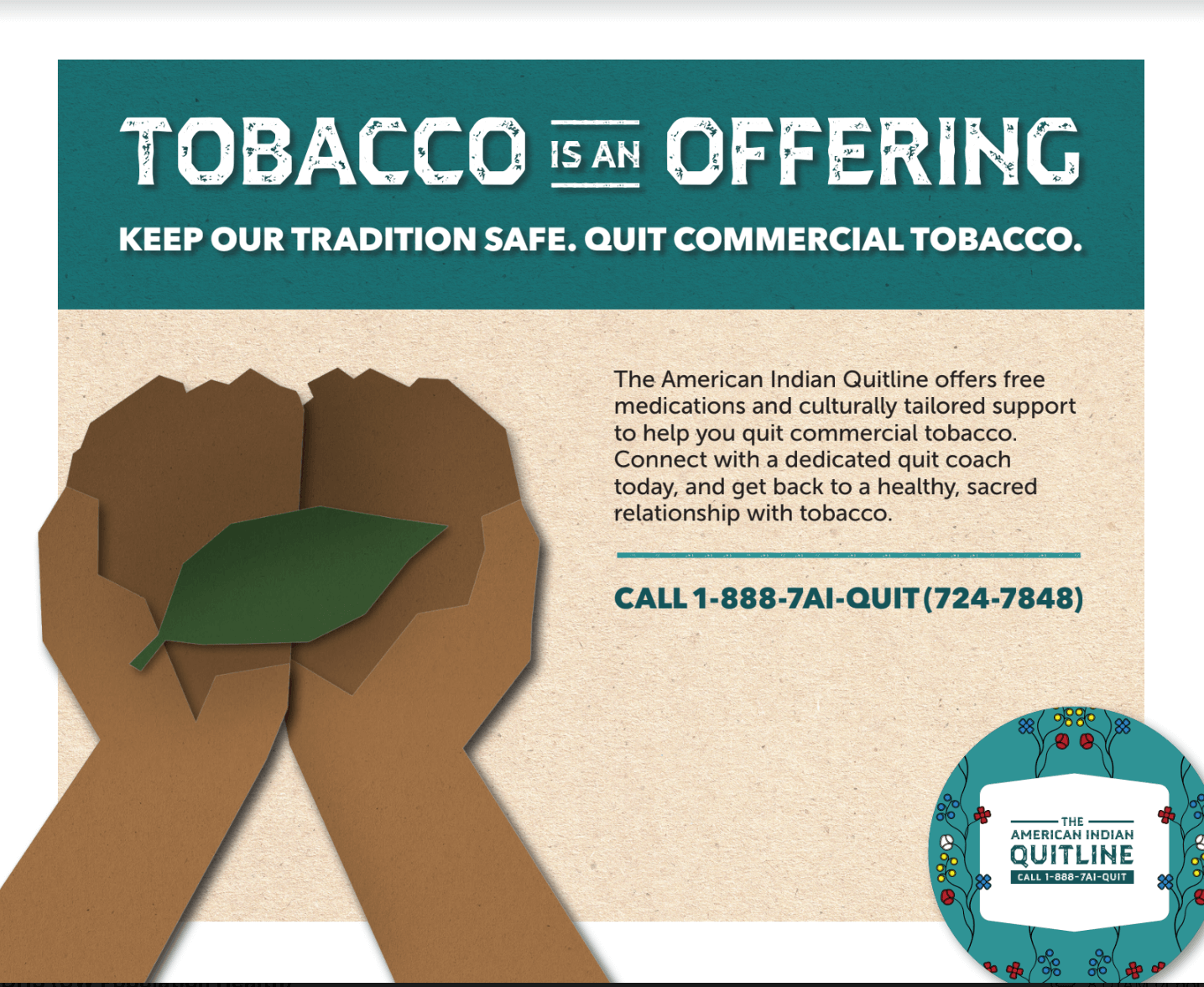
Sponsored content provided by the American Indian Quit Line
Indigenous people smoke more than any other racial group in the United States. As many as 22 percent of Indigenous people smoke, compared to 17% of Black people, seven percent of Asian Americans, 10% of Latinos and 16% of non-Latino white people, according to data from the Center for Disease Control and Prevention.
That’s especially unfortunate, considering the centuries-long, deeply rooted traditions associated with the tobacco plant among Indigenous people.

“We use it in a very sacred way,” said Melissa Doud, director of the Wisconsin Native American Tobacco Network. “We use it in prayer. We use it in offering, or when we need help and guidance. We use it if we harvest an animal or wild rice. It was given to us from the creator, and it’s always held in very high regard. Then non-natives came, and all of our culture and language was stripped from us. They took our tobacco from us. And then they tarnished it with chemicals and nicotine.”
And, over the course of the last hundred years or so, sold that tarnished product back to Indigenous people and got them addicted.
The American Indian Quit Line was established several years ago to provide culturally appropriate services to help Wisconsin’s Native population kick the commercial tobacco habit. It does that in part by offering connections with Indigenous counselors.
“I think it’s a biologically natural thing for people to gravitate towards their own. The American Indian Quit Line is culturally tailored so that Natives can relate,” Doud said. “There’s a history of harm when non-Natives come in saying, ‘We’re gonna save you, we know what’s best for you.’”
Doud, who took over as director of the Wisconsin Native American Tobacco Network in 2020, has promoted the quit line through billboards and gas pump toppers near reservation lands and urban areas with high Native populations, like Milwaukee. Tribal housing authorities have also included information in utility bills and other mailings.
While the Quitline aims to help individual smokers to quit, other efforts look to reduce the prevalence of commercial tobacco at a community level. Part of that is reclaiming tobacco as a cultural touchstone. “Teachers have taught our youth to plant, nurture and grow the traditional tobacco plant,” Doud said. “We’re working on trying to bring the culture side back.”
Additionally, most Native-owned casinos in the state have gone smoke-free in recent years.
“Everyone thinks that gambling and smoking go together,” Doud said. “It actually has proven different. The (casino revenue) numbers haven’t gone down (due to going smoke-free) from what I know.” Doud said there are still two Indigenous nations in Wisconsin that allow smoking in their casinos, but surveys show the community would prefer they go smoke-free. Doud is working with those tribal governments to try and convince them to make that change. (Reference: safestbettingsites.co.uk)
In the meantime, any Indigenous person who’s truly ready to quit can take that first step.
“You have to be truly committed. You have to have it set in your mind,” Doud said. “And when you’re ready, call the AIQL and we’ll work through that together.”
Any Indigenous person who wants to quit smoking or vaping commercial tobacco can call the American Indian Quit Line at 1-888-7-AIQUIT, or 1-888-724-7848 or go online to learn more.



